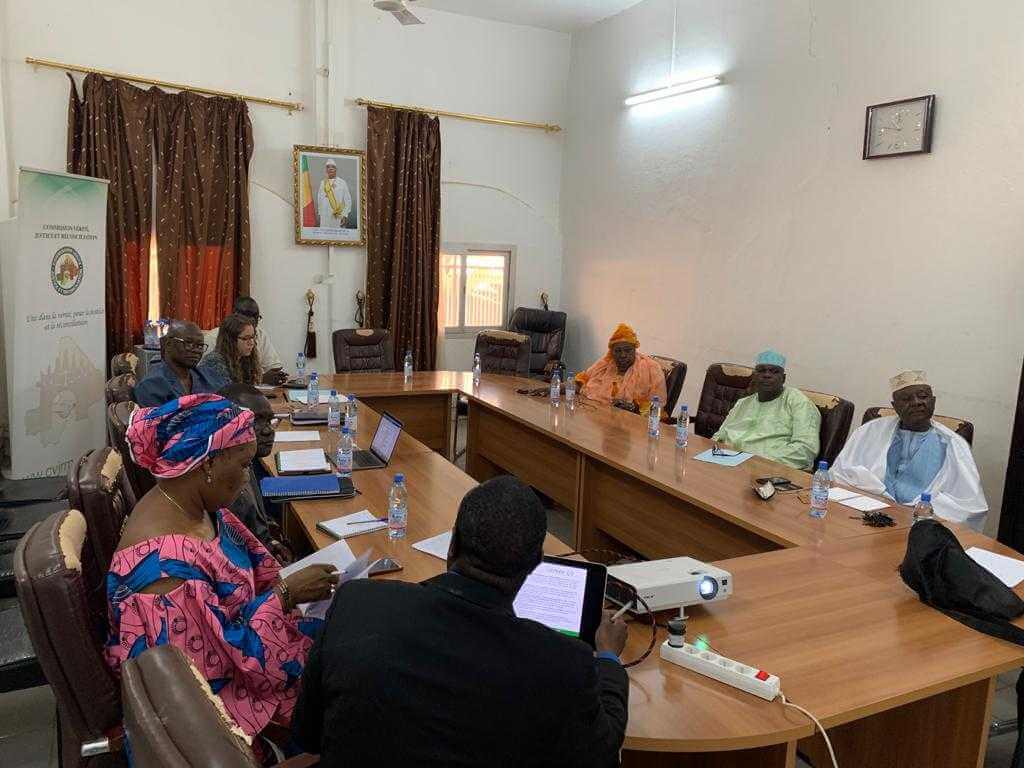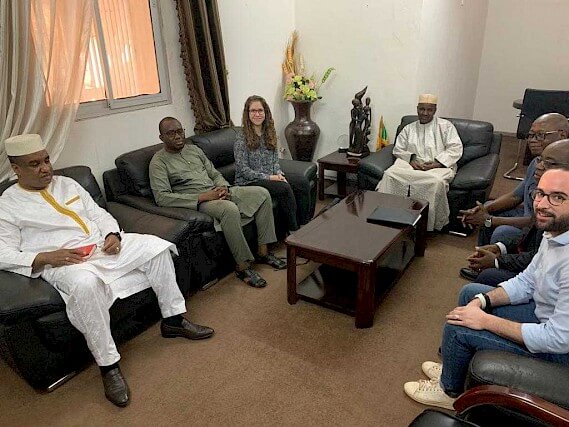
On February 26th and 27th, 2020, the Executive Secretary of the Truth, Reconciliation and Reparations Commission (TRRC) of The Gambia, Dr. Baba Jallow, visited Mali at the invitation of Lawyers Without Borders Canada to meet with the representatives of the Malian Truth, Justice and Reconciliation Commission (CVJR).
The objective of the meeting was to share best practices from the experience of these two transitional justice mechanisms in West Africa and to strengthen the links between them.
“The exchange of experiences through mutual understanding of the different contexts is one of the keys to the success of the transition processes via the truth-seeking mechanisms and the promotion of victims’ rights.”
Aristide Nononsi, head of mission of ASF Canada in Mali
Spread over two days, the meeting allowed a fruitful and inspiring exchange between the members of the CVJR and Dr. Jallow. The differences between the mandates of the two commissions and the strategies put in place elicited curiosity on both sides and gave rise to lively discussions. The participants were mutually impressed by the work accomplished so far by both committees.
“Our two commissions operate in different contexts, but both have the task of finding the truth about serious human rights violations. In Mali, it was first necessary to document the violations before public hearings were accepted by the population, whereas we see that in The Gambia, they used public hearings to document the violations.”
Ousmane Oumarou Sidibé, President of the CVJR
Meeting between the TRRC of the Gambia and the Mali’s CVJR during Dr. Baba Jallow’s visit to Bamako
Created in Mali in 2014, the CVJR’s mission is to “contribute to the establishment of lasting peace through the search for truth, reconciliation, the consolidation of national unity and democratic values”. The scope of its mandate is broad, in terms of both geography and time period, since it covers serious human rights violations from 1960 to the present. The CVJR held its first public hearing, which focused on attacks on the right to liberty, on December 8, 2019. It also already presented its proposal for a national reparations policy to the Malian government last March 2020 and continues to refer victims who are in urgent need of psychological or medical support to the health facilities.
The Gambia’s TRRC was created in 2017. It has the mandate to investigate human rights violations committed under the authoritarian regime of Yahya Jammeh, who presided over The Gambia from 1994 to 2007, to promote reconciliation and non-repetition of human rights violations, and to provide reparation to victims. It began holding public hearings in January 2019 and is currently in its 12th session. The TRRC has since developed and adopted a reparations policy for victims in urgent need and continues to work on the adoption of a general reparations policy.
This very first exchange meeting between Dr. Jallow and the members of the Malian CVJR focused mainly on the respective reparations processes in each country as well as on public hearings, and more particularly on the participation of women in such hearings. They were also able to address the issue of measures of protection for victims and witnesses.
“It was fascinating to see that despite very different contexts, the two commissions were inspired by one another to promote respect for human rights, the protection of victims and the participation of women.”
Valérie Bergeron Boutin, volunteer legal advisor for ASF Canada’s projet, “Stabilization of Mali through the CVJR”
At the end of the meeting, Dr. Jallow and the members of the CVJR expressed their interest in continuing to discuss the respective standards put in place to promote the rights of victims, a promising step for the future of human rights in West Africa.
